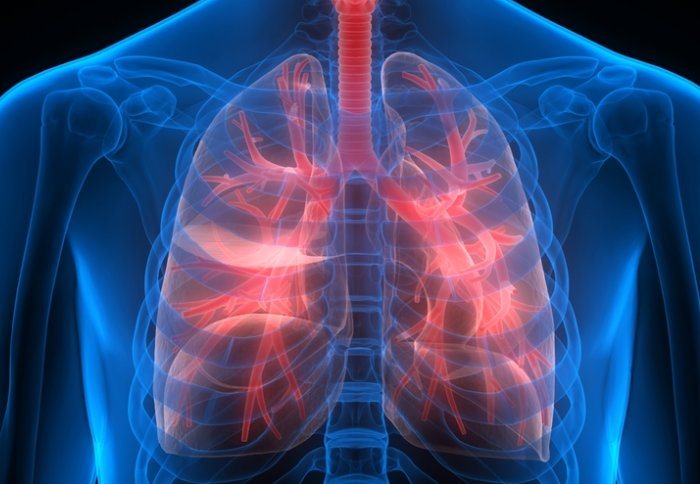Have you ever wondered why we cannot breathe underwater although water contains oxygen. Why can fish extract oxygen underwater while, we need an oxygen cylinder? Similarly, why fish cannot breathe outside water since air is made up of oxygen?
The answer is simply the difference in respiratory systems in terrestrial versus marine organisms. Respiration in humans starts by the passage of air carrying oxygen and carbon dioxide from the nose through the trachea to the lungs. The bronchi inside the lungs narrow gradually until oxygen flows from the lung membranes into the bloodstream. Exhaled air carries carbon dioxide from blood cells as a result of the process of feeding cells with glucose, which takes only a few seconds.

Water molecules are made of covalently bonded gases—two hydrogen atoms and one oxygen atom—that need a lot more energy to break the atoms apart to release oxygen. The lining of the human lung is not designed to carry out such a process, and a person would die before having sufficient oxygen rates to resume breathing. Moreover, the lungs will not benefit from oxygen in its atomic state.
Extraction of the dissolved oxygen out of the water is not easy, because water density exceeds that of air, and air has 20 times more oxygen than water. The main reason for fish ability to breathe underwater is the fact that fish are cold-blooded, which means they need small oxygen amounts to complete the breathing process. Some warm-blooded marine organisms, such as whales and dolphins, have difficulty in extracting enough oxygen using gills; thus, they head to the surface of the water to grasp some air.
Fish also need oxygen to survive, although they do not breathe oxygen from water molecules (H2O); the gills extract the dissolved oxygen from water. Indeed, several gases can dissolve in liquids; we can see this in soft drinks where huge amounts of carbon dioxide are dissolved in soda, appearing in the form of bubbles when the container is opened.
Amphibians are the link between terrestrial and marine organisms, because they depend on the lungs, skin, and sometimes gills to complete the breathing process. They begin to breathe using the skin by secreting mucous substances to maintain skin moisture and absorb oxygen, which in turn moves to the capillaries near the skin surface, then to all body cells. It is worth mentioning that amphibians absorb more than one-quarter of the amount of oxygen they consume during respiration through the skin; in case the skin is dry, they cannot breathe and die. Some amphibians, such as tadpoles—a larval stage in the lifecycle of a frog—do not rely solely on the lungs or skin, and use their nostrils to carry out the breathing process, similar to fish gills. The reason is that these amphibian tadpoles stay in water during a certain period of their growth.
Last but not least, chemistry always surprises us by its exciting interactions and brilliant colors. Some elements react together to produce the same compounds with the same molecular formula; however, when they are studied closely, we discover they are completely different when consumed by different organisms.
References
science.howstuffworks.com
livescience.com
quora.com
sciencing.com